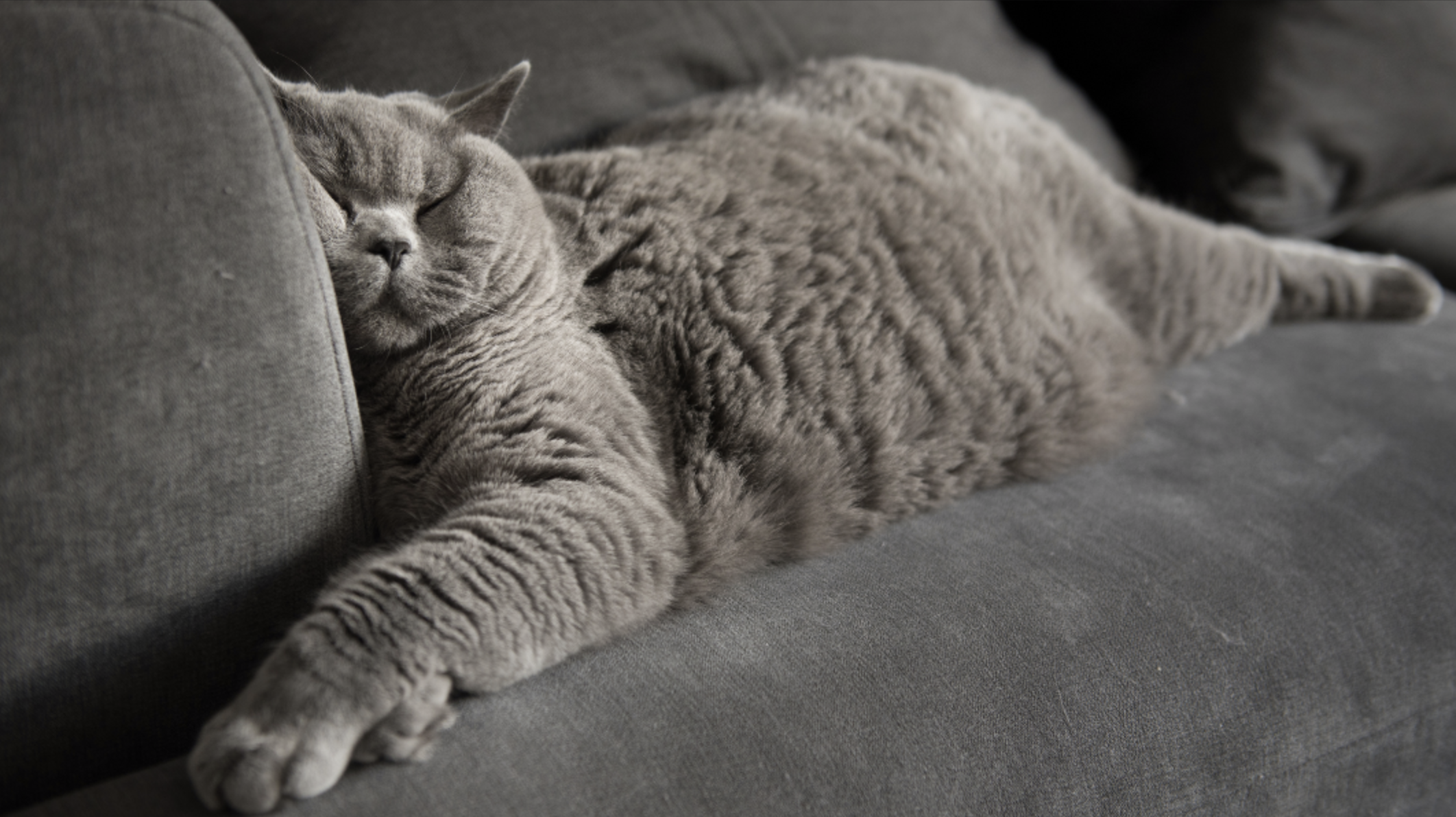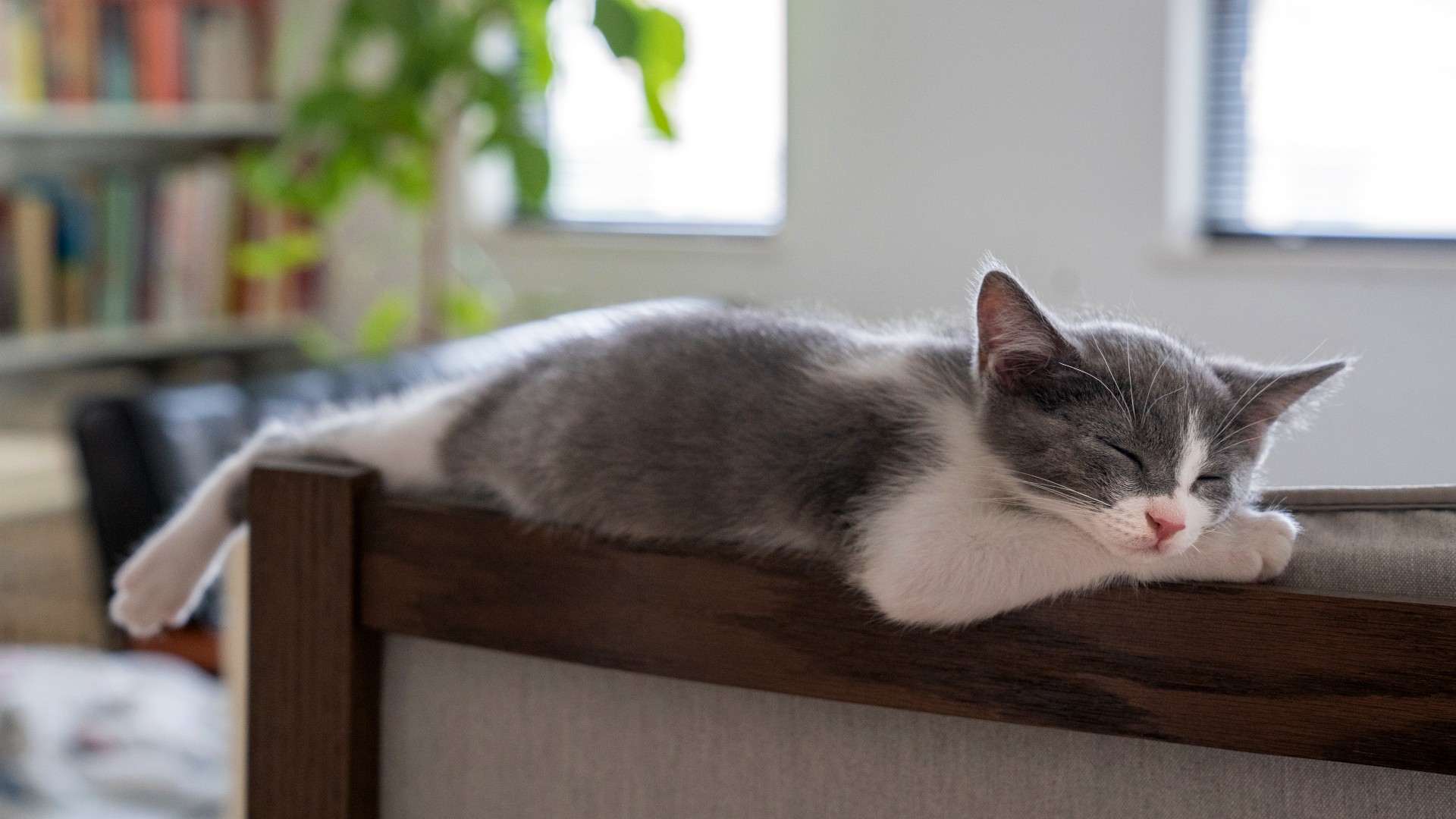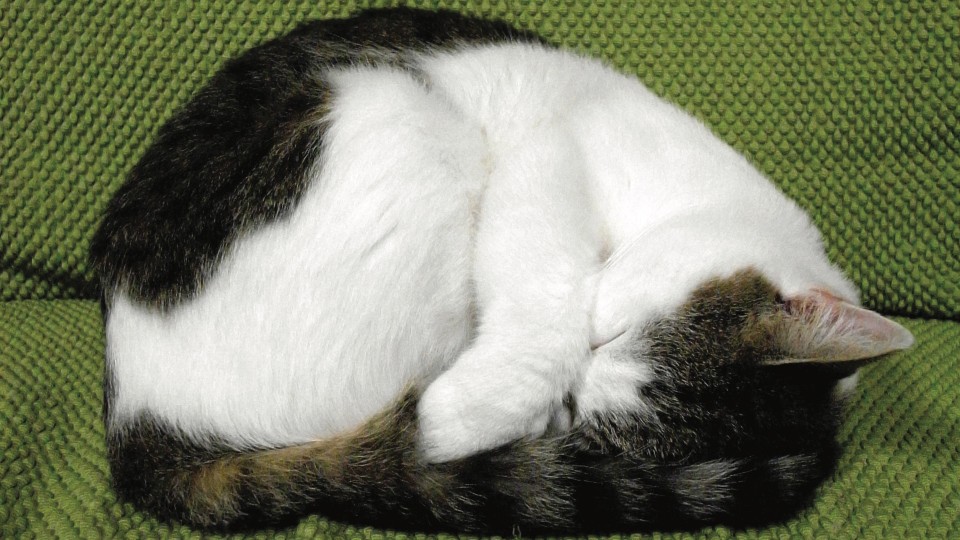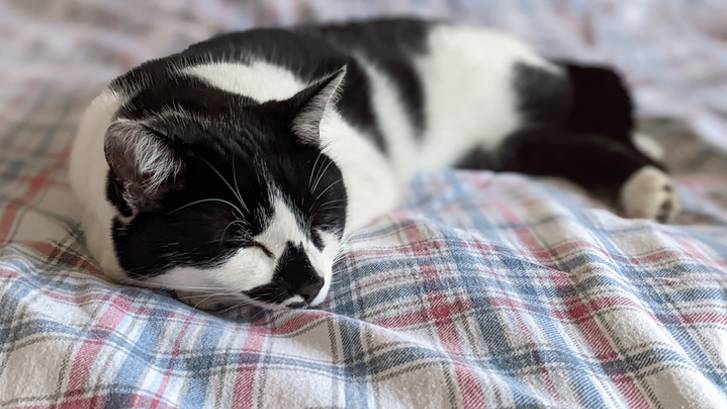Why is my cat twitching in their sleep? Vet's guide to dreaming vs. seizures
Is your cat twitching in their sleep, and should you be concerned? We asked a vet.

Get the best advice, tips and top tech for your beloved Pets
You are now subscribed
Your newsletter sign-up was successful
So you’ve watched carefully and you’re wondering, “why is my cat twitching in their sleep?” Is it a case of them having a pleasant dream – perhaps running through fields, catching mice and then retiring in front of a nice warm radiator – or is it a sign of an underlying health condition that requires prompt attention?
It’s quite natural to think that twitching is an indication of a seizure or a neurological episode and, if truth be told, it can be. It can also indicate muscle spasms which is why it’s important to monitor your cat once you’ve noticed twitching to assess the significance of it. Of course, it may simply be a case of your cat dreaming but it’s never harmful to be cautious.
Why do cats twitch in their sleep?
Many cat owners notice their pets twitching in their sleep on occasion. Even if your feline appears to be snoozing in the best cat bed or best cat hammock a twitch can offer – the key is to work out if it’s almost every time they nap or on a rare basis.
Possible causes of twitching during sleep include:
- Acting out a dream
- Nervous system development (kittens tend to twitch more than adults, and this may be related to the development of new connections in their nervous system)
- Uncontrollable muscle spasms (which tend to affect a single part of the body)
- Seizures (involving the entire body)
While most causes of sleep twitching are nothing to worry about, you don’t want to neglect seizures if they are causing your cat’s twitching.
Is it normal for cats to twitch in their sleep?
Occasional twitching during sleep is normal and it’s not necessarily something to be concerned about, even if they’re moving actively and looking as if they may fall out of their cat bed. Normal twitches are often very subtle but your cat may occasionally make broad movements that look like running or acting out other aspects of a dream. The key is to spot when the twitching is not normal for your cat. You will need to pay close attention, monitoring as a detached observer, to gather more information about exactly what is happening during your cat’s sleep.

Is my cat dreaming or having a seizure?
It’s normal for cats to move while dreaming and this movement can, at times, be pronounced. A cat that is having a seizure, however, will typically experience widespread muscle rigidity, accompanied by rhythmic movement.
Get the best advice, tips and top tech for your beloved Pets
While a dreaming cat may subtly paddle their legs as if walking or running (in a way that mimics normal movements), a cat that is having a seizure will be tense across their entire body with exaggerated movements of the limbs --- any paddling with be rhythmic and exaggerated; totally different to the relaxed dream movements that most cats exhibit.
Most cats experiencing seizures will also show signs of neurologic changes during their waking hours. If your cat is otherwise acting completely normal, sleep-related movements are relatively unlikely to be seizures.
On the other hand, if your cat has experienced recent changes in appetite, energy level, or behavior during other times of the day, seizures may be more of a possibility.

Should I wake my cat up if he's twitching?
In general, no. It’s not a good idea to try to wake your cat up from sleep.
If your cat is twitching due to a dream, he is likely in the REM (rapid eye movement) phase of sleep. This is the deepest phase of sleep, and the sleep phase during which dreams occur. Cats that are woken up during REM sleep may be disoriented, and may even act aggressively toward their owners.
Additionally, REM sleep is the most restful and restorative sleep for pets. If you wake your cat up from REM sleep, you are limiting its ability to obtain needed rest.
Why do cats sleep with their eyes open?
In addition to twitching, you may have noticed another unusual behavior exhibited by cats when sleeping. Many cats sleep with their eyes partially open, at least some of the time. The first time you notice this, it can be a bit surprising!
Fortunately, it is completely normal for cats to sleep with their eyes open. During the lighter stages of sleep, many cats keep their eyes partially open so they can be alert to threats in their environment. Cats in the wild are constantly ready to avoid an attack from predators or another territorial cat, and our domesticated cats have retained this same level of alertness.

When to visit your veterinarian
If you are concerned that your cat may be having seizures, schedule an appointment with your veterinarian. Record a video of your cat’s sleep movements on your phone, if possible, so your veterinarian can see the movements that are concerning you.
Based on video observation and a thorough physical examination, your veterinarian can determine whether a further workup for neurologic disease may be indicated.
Interested in discovering more about cat sleep? Then learn why do cats sleep so much? , why do cats sleep so much? and 6 cat sleep positions: what they tell you about your kitty.
Dr. Barnette is a graduate of the University of Florida, where she received both her B.S. in Zoology and her Doctor of Veterinary Medicine (DVM). She has 15 years of clinical experience as a small animal veterinarian, treating dogs, cats, and occasional exotic patients. She now works as a freelance veterinary writer, creating educational content for veterinarians, veterinary team members, and dedicated pet owners. Dr. Barnette lives in southwest Florida with her husband and daughter (plus two cats, a dog, and a rescued dove!) and enjoys kayaking, biking, and hiking. Learn more about Dr. Barnette at www.linkedin.com/in/catherinebarnette.

